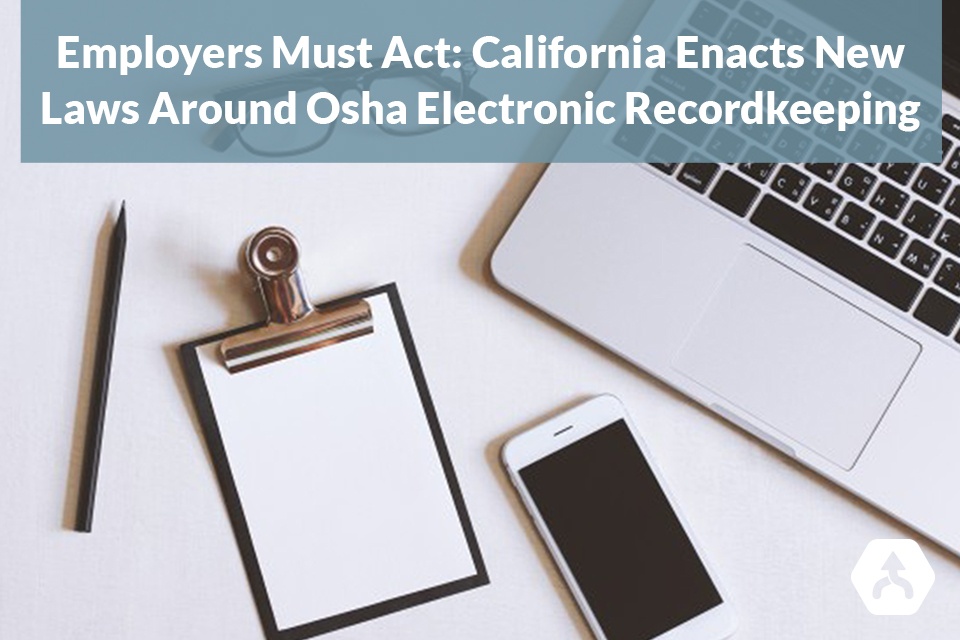
California is paving its own path when it comes to the OSHA electronic recordkeeping rules, which the Trump administration relaxed on July 30, 2019. With the recent call to suspend the electronic submission of the OSHA 300 log and 301 Form, California is establishing its own version of the proposed federal rule given the new revised and relaxed requirements.
By creating laws to keep the stricter provisions, the state of California is pushing for greater workplace safety and health changes. With the unique record-keeping requirements in California, it is crucial for agents to educate their California clients of the two new regulations and how to properly submit their records.
California has also enacted an emergency law requiring employers to electronically submit their 2017 300A data to OSHA by Dec. 31, 2018. Agents should advise their clients immediately of this legal obligation.
Resurrecting the Volks Rule
On the federal level the original stipulations included a provision known as the “Volks Rule,” which allowed OSHA to enforce recordkeeping requirements for up to five-and-a-half years. The revised law by the Trump administration only allows OSHA to penalize employers for failing to record injuries or illnesses that took place up to six months ago.
On the state level, California has amended the law to reinstate the stricter regulations. California has specified a statute of limitations that states that an employer can be cited in violation beyond that six-month mark. While California has not established a timeframe it does state that a violation can be cited until it is corrected, Cal/OSHA discovers it, or the duty to comply with the requirements is no longer applicable.
Monitoring of federal requirements
With the intent to preserve some of the provisions that were rolled back, Cal/OSHA will now monitor federal electronic recordkeeping requirements as well as proposed changes. If a change or deletion is made on the federal level, Cal/OSHA will bring together its advisory committee to determine what needs to be done in California to maintain the original requirements. By instating state-law versions of the proposed recordkeeping requirements, California will strive to protect the goals of the initial proposed federal rule.
Taking immediate action for 300A data
California has also enacted a new regulation that requires employers to submit their 2017 300A data to OSHA by the end of the year if they haven’t already. By doing so, California hopes to protect workers from health and safety hazards in almost every workplace.
This means that certain employers will need to electronically submit their summary of recordable work-related injuries and illness for the year 2017. Specifically this law includes all employers with 250 or more employees unless exempted as well as employers with 20-249 employees in specific industries.
Support your clients & prospects
These California and Cal/OSHA regulations place added burden on many California employers—yet many employers don’t even realize their new requirements under the law. Other employers who do know about the new regulations are confused with all the changes at the state and federal level.
This is a prime opportunity for insurance agents to provide value to clients (and prospects) by explaining all the regulatory changes and advising on next steps to comply. Download this compliance guidebook to provide an overview of all the OSHA regulations and provisions, plus an actionable checklist for your clients to follow.

